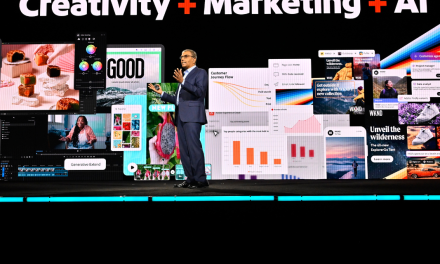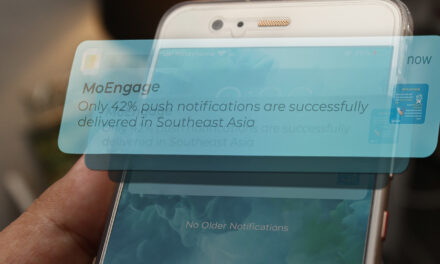More than 80% of decision-makers view smart checkout, workforce software and prescriptive analytics as key emerging technologies by 2025.
70% of shoppers in Asia Pacific prefer direct delivery of items rather than picking them up at a store and 65% of shoppers prefer shopping at stores with contactless payment options.
This is according to the findings of a survey, 13th annual Global Shopper Study, by business solutions provider Zebra Technologies Corporation, released on 26 April.
Zebra’s annual study found shoppers expect a seamless experience between stores and online and are increasingly placing orders online because of desired product availability, resulting in a surge of e-commerce orders with nearly 60% placing an order in the last three months.
With more than one-fifth of shoppers returning an item purchased online, 57% of store associates are feeling significantly challenged by these returns, the survey revealed. Out-of-stocks also remain a challenge and 41% of shoppers say this is the top reason for leaving stores without a purchase. This is followed by long checkout lines (32%) and an inability to find items (31%) both representing a marked increase from last year.
Growth in mobile ordering
According to the survey results, 72% of shoppers used mobile ordering and 82% of those shoppers are highly likely to continue using it. Millennials (88%) and Gen X (79%) shoppers were the primary users of mobile ordering but nearly half of Boomers (47%) used it too, and 74% of them are likely to continue using it in the future. Sixty-four percent of shoppers believe more retailers need to offer mobile ordering while the vast majority of decision-makers (90%) and store associates (83%) agree mobile ordering would help meet customer expectations.
Smart-checkout leads to better experience
The survey findings also showed that approximately half (47%) of surveyed shoppers have interacted with self-checkouts in the last six months and more than six-in-10 (63%) shoppers agree self-checkout solutions provide an improved customer experience.
Safety matters in in-store experience
Consumer and associate confidence can be increased when precautions or safety measures are put into place, said Zebra in a statement. Currently, there is a sizable trust gap between retail decision-makers, shoppers and associates when it comes to health and safety.
This is reflected in the numbers: while approximately 90% of decision-makers think shoppers and associates trust them to make health and safety a priority, only 65% of shoppers and 77% of associates agree. Nearly two-thirds (67%) of shoppers are concerned with surface sanitation or social exposure in stores, and 59% of shoppers prefer stores with contactless payment options. Seven-in-10 associates say social distancing/contact tracing apps would allow them to provide a better customer experience.
“Issues such as out-of-stocks, lack of product variety, online delivery cost and timing and returns have contributed to the significant decline in in-store and online satisfaction of shoppers in 2020, as our study has found,” said Fang-How Lim, Regional Director for Southeast Asia, Zebra Technologies. “Retailers in Southeast Asia are aware that success relies on improving the shopper experience. In order to provide a more seamless and satisfying omnichannel experience, these retailers must invest in analytics, mobile ordering, smart checkout, and other retail technology solutions that can enhance efficiency and accuracy like Zebra’s TC21/TC26 touch computers, and the MC2200 and MC2700mobile computers.”
Zebra’s 13th annual Global Shopper Study included approximately 4,175 shoppers, 577 retail associates, and 412 retail executives from North America, Latin America, Asia-Pacific, Europe and the Middle East who were interviewed in August – September 2020 by Azure Knowledge Corporation.



















